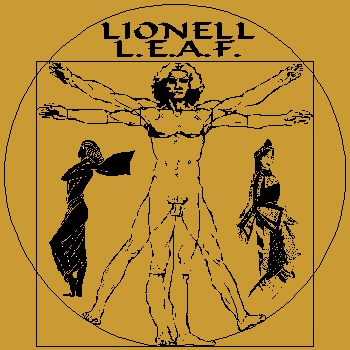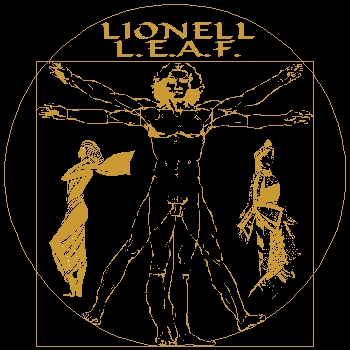LEGAL POLICY
For Profit & Non Profit PROFILE:
LIONELL INC (A Private Corporation) & L.E.A.F. (A Private Non Profit Organization)
manifests it's Business Entity STATUS by Adhering to Delaware Corporate Law (since 2001):
Any questions,
a good place to start is DELEWARE.GOV
# 7389 OSHA.GOV Classification for LIONELL INC
Standard Industry Code Number "7389"
Business SIC # for LIONELL INC is *7389*
As the Officer (Layman) of this venture(s),
I do as I please, when I please
- when it pleases I:
PRIVATELY Thank You for respecting my privacy...
of·fi·cer [áwfissər, óffissər]noun (plural of·fi·cers)
elected or appointed official: somebody who is elected or appointed to an administrative
position in a society, corporation, or government department
lay·man [láymən]
(
plural lay·men [láymən])
noun
| 1. |
somebody without specialist knowledge: somebody who is not trained or expert
in a particular area
a law book for the layman |
Microsoft® Encarta® Reference Library 2005. © 1993-2004 Microsoft Corporation. All rights
reserved.
Copyright
© 2000 - 2020 LIONELL.E.A.F. ORATIONS:
LIONELL.E.A.F. OMNIS ORIGIN / CORPORATIONS DE FACTOS
(corporations of facts)
AUTONOMOUS / An
autonomous agent is a system situated in, and part of, an environment, which senses that environment,
and acts on it, over time, in pursuit of its own agenda. This agenda evolves from drives (or
programmed goals). The agent acts to change the environment and influences what it senses at
a later time.
SOVEREIGN / "Sovereign" redirects here. For other uses, see Sovereign (disambiguation).
The frontispiece of Thomas Hobbes' Leviathan, depicting the Sovereign as a massive
body wielding a sword and crozier and composed of many individual people.Sovereignty is the quality
of having supreme, independent authority over a territory. It can be found in a power to rule and
make law that rests on a political fact for which no purely legal explanation can be provided. The
concept has been discussed, debated and questioned throughout history, from the time of the Romans
through to the present day, although it has changed in its definition, concept, and application throughout,
especially during the Age of Enlightenment. The current notion of state sovereignty was laid down
in the Treaty of Westphalia (1648), which, in relation to states, codified the basic principles of
territorial integrity, border inviolability, and supremacy of the state (rather than the Church).
A sovereign is a supreme lawmaking authority.
PRIVATE / Privacy (in Latin privatus 'separated
from the rest, deprived of sth, esp. office, participation in the government', from privo 'to
deprive') is the ability of an individual or group to seclude themselves or information about
themselves and thereby reveal themselves selectively. The boundaries and content of what is
considered private differ among cultures and individuals, but share basic common themes. Privacy
is sometimes related to anonymity, the wish to remain unnoticed or unidentified in the public
realm. When something is private to a person, it usually means there is something within them
that is considered inherently special or personally sensitive. The degree to which private information
is exposed therefore depends on how the public will receive this information, which differs
between places and over time. Privacy can be seen as an aspect of security — one in which
trade-offs between the interests of one group and another can become particularly clear.The
right against unsanctioned invasion of privacy by the government, corporations or individuals
is part of many countries' privacy laws, and in some cases, constitutions. Almost all countries
have laws which in some way limit privacy; an example of this would be law concerning taxation,
which normally require the sharing of information about personal income or earnings. In some
countries individual privacy may conflict with freedom of speech laws and some laws may require
public disclosure of information which would be considered private in other countries and cultures.
Privacy may be voluntarily sacrificed, normally in exchange for perceived benefits and very
often with specific dangers and losses, although this is a very strategic view of human relationships.
Academics who are economists, evolutionary theorists, and research psychologists describe revealing
privacy as a 'voluntary sacrifice', where sweepstakes or competitions are involved. In the business
world, a person may give personal details (often for advertising purposes) in order to enter
a gamble of winning a prize. Information which is voluntarily shared and is later stolen or
misused can lead to identity theft.The concept of privacy is most often associated with Western
culture, English and North American in particular. According to some researchers, the concept
of privacy sets Anglo-American culture apart even from other Western European cultures such
as French or Italian.[1] The concept is not universal and remained virtually unknown in some
cultures until recent times. A word "privacy" is sometimes regarded as untranslatable[2] by
linguists. Many languages lack a specific word for "privacy". Such languages either use a complex
description to translate the term (such as Russian combine meaning of уединение - solitude,
ÑекретноÑÑ‚ÑŒ - secrecy, and чаÑÑ‚Ð½Ð°Ñ Ð¶Ð¸Ð·Ð½ÑŒ - private life) or borrow English "privacy" (as
Indonesian Privasi or Italian la privacy)[2].
PRIVATE INC / The term privately held company
or close corporation refers to the ownership of a business company in two different ways: first,
referring to ownership by non-governmental organizations; and second, referring to ownership
of the company's stock by a relatively small number of holders who do not trade the stock publicly
on the stock market. Less ambiguous terms for a privately held company are unquoted company
and unlisted company.Though less visible than their publicly traded counterparts, private companies
have a major importance in the world's economy. In 2008, the 441 largest private companies in
the USA accounted for $1.8 trillion in revenues and employed 6.2 million people, according to
Forbes. In 2005, the 339 companies on Forbes' survey of closely held U.S. businesses sold a
trillion dollars' worth of goods and services and employed 4 million people. In 2004, the Forbes'
count of privately held U.S. businesses with at least $1 billion in revenue was 305.[1]
PRIVATE FOUNDATION / Private
foundations are legal entities set up by an individual, a family or a group of individuals,
for a purpose such as philanthropy. The Bill & Melinda Gates Foundation is the largest private
foundation in the U.S. with over $38 billion in assets.[1] However, most private foundations
are much smaller and approximately two-thirds of more than 84,000 filing with the IRS in 2008
have less than $1 million in assets and 93% have less than $10 million.[1] In aggregate, private
foundations in the U.S. control over $628 billion in assets[1] and made more than $44 billion
in charitable contributions in 2007.[2]Unlike a charitable foundation, a private foundation
does not generally solicit funds from the public.

Copyright © 2000 - 2025 LIONELL.E.A.F. ORATIONS


